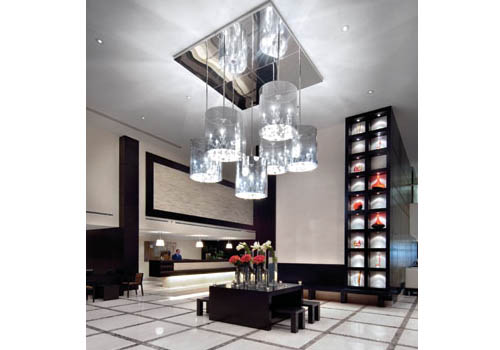Although a step in the right direction, this drive to attract leisure tourists is in its infancy.
Sayees says that in Riyadh hoteliers are trying to establish a committee to work directly with the tourism commission, but admits that there will always be "cultural challenges".
"Things are still pretty strict and we work closely with the relevant commissions in the city to try and coordinate efforts, mainly when you have somebody who has never been to Riyadh and they have to adapt to the culture - unmarried couples not mixing in public, women covering up. What we do is send a pre-arrival information pack to our guests, just so that they're aware of what to expect," he says.
"The tourism commission is still in a probabtion period really. Saudi Arabia has always been, and will remain, a religious centre. But now visas are easier to obtain - 18 tour operators are now able to get group visas - ladies are allowed to check into hotels and there's talk of ladies being allowed to drive, so there are initiatives that show that the country is opening up."
Market potential
Saudi Arabia's Supreme Commission for Tourism (SCT) was created in 2000 and charged with the responsibility of promoting the tourism industry, both within Saudi Arabia and internationally.

Advertisement
The body's secretary general HRH Prince Sultan Bin Salman bin Abdulaziz Al-Saud explains that SCT is restructuring the Kingdom's tourism sector so it can "go to the next level".
"The hotel sector reorganisation will be a challenge. Over the next 11 months we are going through the classification system in Saudi Arabia. We will also introduce new accommodation types. We are also going through a process of restructuring many historic villas. We are also taking on the travel sector," he adds.
The economy will be a "big driver for tourism in Saudi Arabia" according to HRH Abdulaziz Al-Saud and IHG's Kasselis says that hotel developers should take into consideration developments such as the new economic cities when choosing where to place their properties.
"For a hotel company it's important to know where you're going to put your hotels depending on what else is happening in that area," he says.
"For example, outside of Jeddah you've got King Abdullah Economic City and already quite a bit of work has begun there. It's a very long-term project but that in itself is driving demand. Travelling there from Jeddah you'll see a couple of hotels there that may be perceived as standard resorts but in fact they'll be resorts catering to commercial demand for contractors working in Economic City."
Kasselis goes on to outline the variety and depth of change taking place in Saudi Arabia, outside of the traditionally busy areas of Riyadh and Jeddah.
"What you're seeing at the moment is a lot of development activity in Al Khobar and Damman, and if you look at the geography of those areas you're talking about a very large space, very large distances and different types of economic activity, so what you're getting is a mix of leisure and business demand," he says.









 Search our database of more than 2,700 industry companies
Search our database of more than 2,700 industry companies









